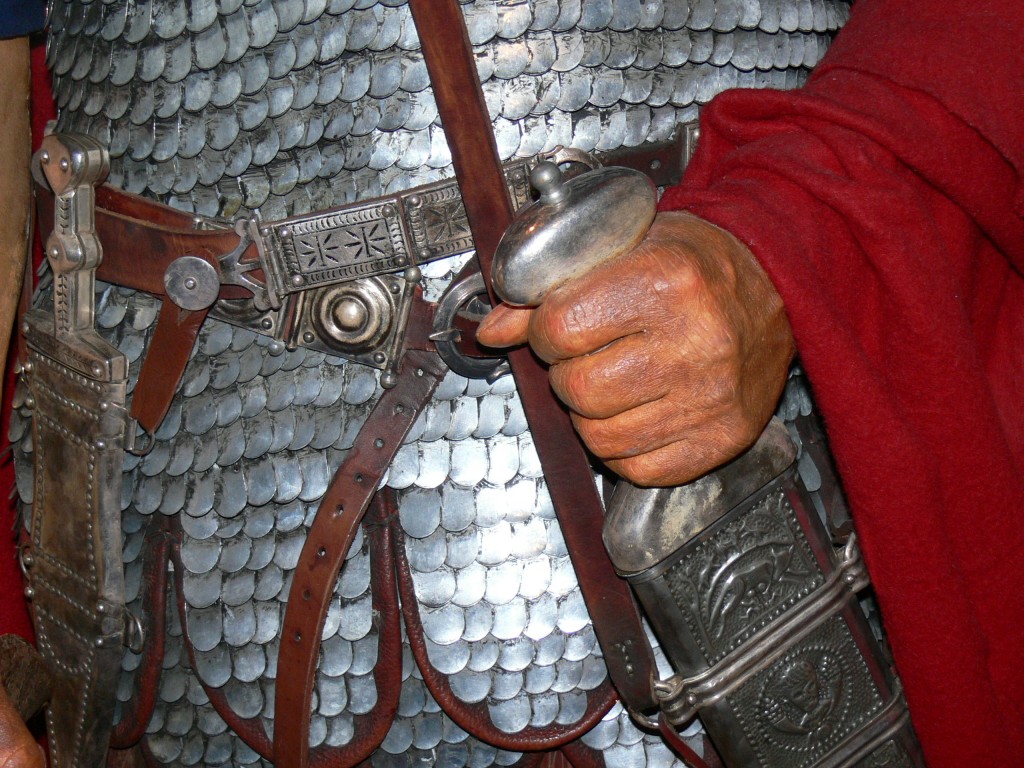 In Matthew 26:52 we have a scene where Jesus rebukes Peter for being rash, but he does so in a more creative way than most people are aware.
In Matthew 26:52 we have a scene where Jesus rebukes Peter for being rash, but he does so in a more creative way than most people are aware.
Then said Jesus to him, Put up again your sword into his place: for all they that take the sword shall perish with the sword.
In the Greek New Testament, the bolded part above reads thus:
παντες γαρ οι λαβοντες μαχαιραν εν μαχαιρη απολουνται
pantes gar hoi labontes mahairan en mahairê apolountai
For all who did take a sword, by a sword they shall die.
A plain retro-translation back into Galilean Aramaic reads:
bagin kal d-nsab saiyp, b-saiyp 1 yimuthun
For everyone who took up a sword, by a sword (OR “in the end”) they shall die.
In Western Aramaic dialects (specifically Galilean) the word saiyp can mean either “sword” or “end.” Given the context, this wordplay is undoubtedly intentional: One who bears a sword shall ultimately die (in the end) by a sword. The Greek, of course, misses this, as no such pun exists with μάχαιρα (mahaira = “sword”).
This wordplay is strong evidence that this saying within Matthew dates back to an Aramaic source (be it oral or written) which in turn strongly suggests that it is quite an early tradition.
In fact, this very wordplay is found in the Christian Palestinian Aramaic New Testament 2 and Lectionary 3 (a Western dialect):
kol haleyn d-nasvin saipa b-saipa avdin
All those who take up the sword, by the sword (OR “in the end”) they shall be lost.